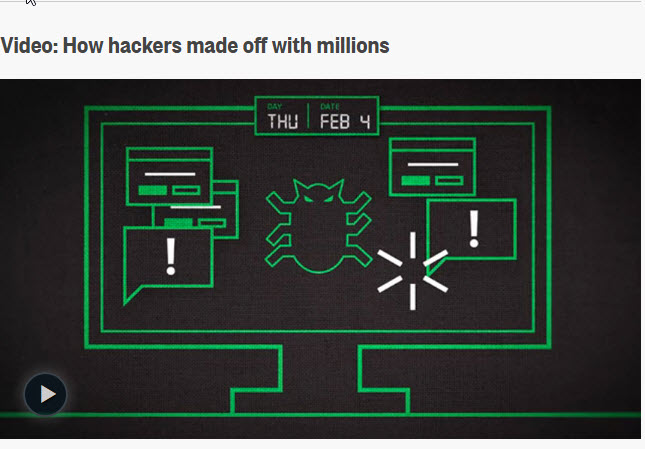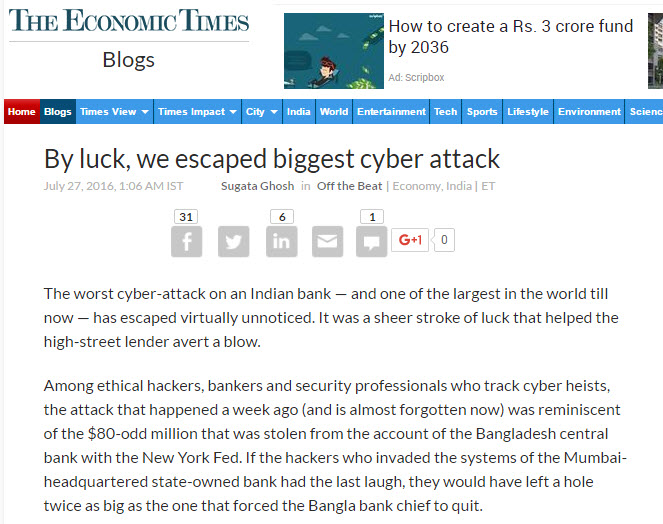There is a WhatsApp message in circulation that states
“Breaking News, Amazon Selling Samsung J7 Mobile Phone at Just 499 Rs because of Golden Anniversary. Buy It Now Before Sale Ends. Cash On Delivery Also Available. Visit just now http://amazon.mobile-
This appears to be an attempt to steal contact information and probably a fraud to steal Rs 499/- from some.
Presently Chrome/Google has flagged the site as a “Suspected Phishing Site” and the site is also blocked by anti virus software .
However it is interesting for the general public to take note of this kind of fraud where the fraudster is riding on a genuine mega sale being promoted by Amazon where discounts upto 50% are being provided on certain items. This fraudulent message however says that the discount is 97% ! and it is for a poplar mobile product. It is possible for many to fall prey to such frauds.
What people should observe is that the domain name starts with “Amazon” but it is only a sub-domain and the main domain is mobile-flashsale.com. If people can recognize this difference, most would be able to identify the fraud.
Now that the website has been blocked by Google itself, the fraud through this domain name may be over. But it may come back in another name again. It is therefore necessary to take some steps to prevent such frauds recurring.
I therefore request the law enforcement agencies to take note of this and try to identify the perpetrator of the fraud and book him for the offences both under ITA 2000/8 and IPC.
The domain name mobile-flashsale.com has been registered by GoDaddy who is the intermediary facilitating the fraud and liable under Section 79 of ITA 2000/8. The website is hosted at cloudfare.com
The registrant noted by GoDaddy is
Mr Anil Kumar, Kanakumari, with a registered mobile number 9886554323 and an email address rv984950@gmail.com.
The sending of the Whats App message, and creating a fraudulent website can be considered as an impersonation/attempted impersonation for commission of/attempt to commit “Cheating” and hence punishable under both ITA2008 and IPC.
I therefore call upon the Police in Kanyakumari to identify this Anil Kumar and prosecute him. It is possible that the e-mail address or the mobile number may be untraceable since wrong addresses might have been provided by the registrant.
In that case the Police needs to book cases against
a) GoDaddy.com
b) Cloudfare.com
c) Google.com
d) The Mobile Service Provider at whom the number 9886554323 is operating. (Vodofone Karnataka) It is possible that this might have been ported from Vodofone Karnataka to some TN service provider in which case Vodofone should provide the new service provider who is handling the current billing for this fraudster.
These intermediaries are guilty of “Negligence” and “Assisting” in the commission of the fraud. They are liable under Section 79 of ITA 2000/8 for lack of due diligence facilitating the fraud.
If any member of the public has suffered loss on account of this crime, they should file a Police Complaint naming these intermediaries as accused and also approach the Adjudicators of their respective states (IT Secretary of the State) to file a complaint under Section 46 of ITA 2008 for recovery of their losses.
Adjudicator of Tamil Nadu can also start a Suo Moto enquiry and direct Police in Kanyakumari to conduct an investigation and report back to him. Once the person is enquired into, the Adjudicator can impose a penalty for a reasonable amount and appropriate it into a fund from which any complainant can be redressed.
This incident should be made into a test case of how the State should respond to such Cyber Frauds. Probably the State administrators will be too busy for such public service and I therefore request public interested advocates to take up the issue and draw the attention of appropriate judicial authorities to take up the issue for prosecuting the fraudster/attempted fraudster alias Anil Kumar.
Naavi
[P.S: If there are any innocent persons by name Anil Kumar particularly in Kanyakumari, kindly excuse me for using the name in this post. I welcome all such people to inform me so that a disclaimer can be put up on this platform stating “I am not that Anil Kumar”.]









